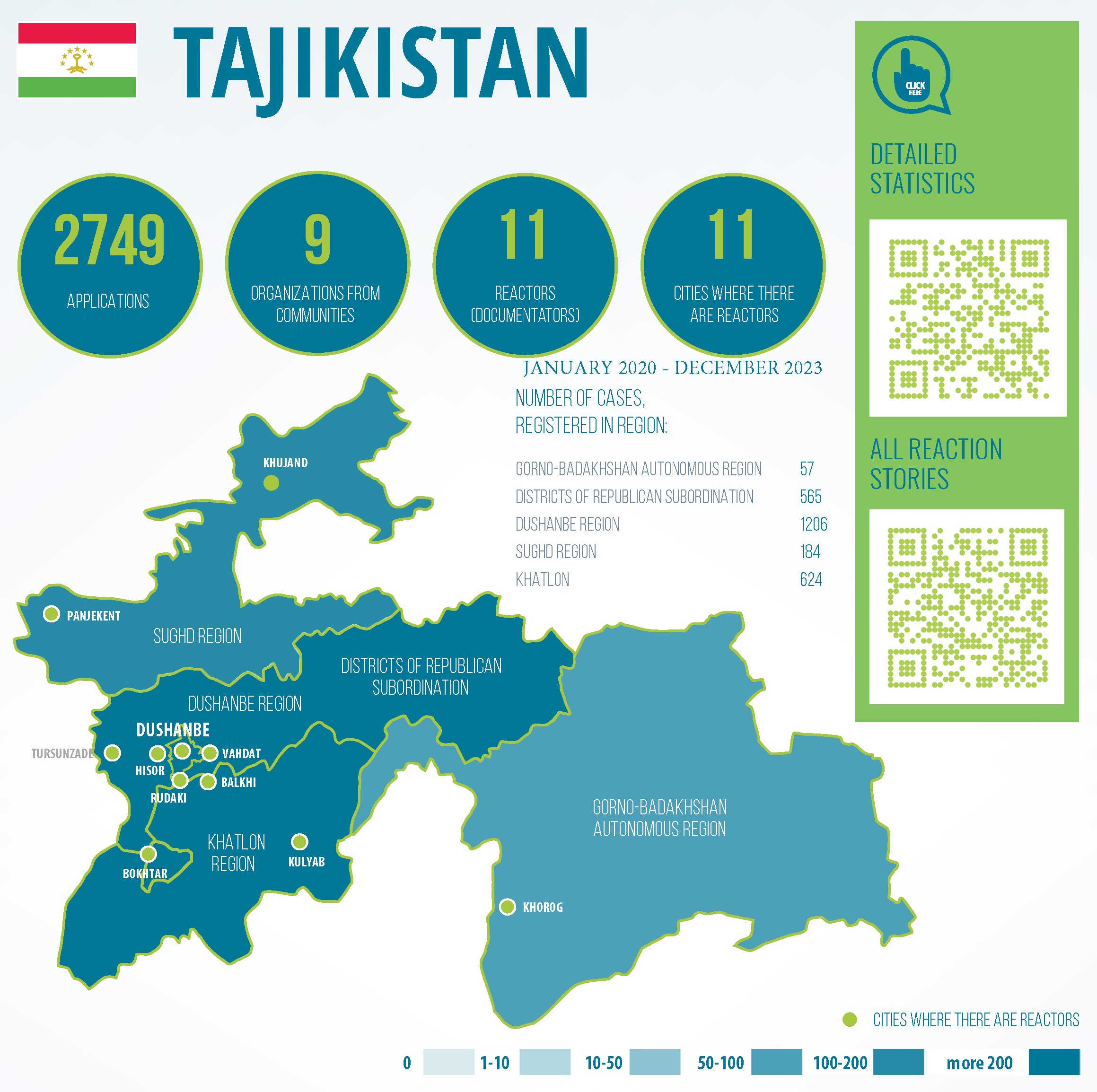Tajikistan

Situation
Tajikistan is a country with a high degree of stigma and criminalization of key population groups. People living with HIV are often prosecuted with the widespread formulation “knowingly exposing another person to the danger of contracting HIV infection” under which even intimate relations with the use of condoms are covered and the defendant may have an undetectable viral load. Despite the fact that sex work and narcotic drug use/possession without the purpose of marketing is an administrative offense and the size of narcotic dose is fairly progressive in the region – both drug users and sex workers are persecuted by law enforcement agencies as potential perpetrators under article 125 p .1 of the criminal code of the Republic of Tajikistan.
There are currently no significant reforms aimed at softening these criminalizing laws (particularly article 125 p .1 of the Criminal Code of the Republic of Tajikistan
Implementation
The REAct system was implemented in Tajikistan in 2020-2021 as part of the regional SoS_project “Sustainability of Services for Key Populations in the Eastern Europe and Central Asia Region” (2019-2021). The implementation of the system was provided by NGO “SPIN-Plus” in cooperation with local HIV service and legal public organizations and is coordinated at the regional level by the ICF “Alliance of Public Health”.
Starting from 2022, funding for the work of the project is provided within the framework of the national grant Global Fund.
REActors
As of June 2022, there are 11 REActors, who represent 9 NGOs located in 11 different cities of the country, one REActor per region. The REActors are expected to travel to cities and towns of the region to collect information and provide services to clients. Cases are also documented through a hotline, initiated under the C19RM mechanism in response to the COVID-19 pandemic.

